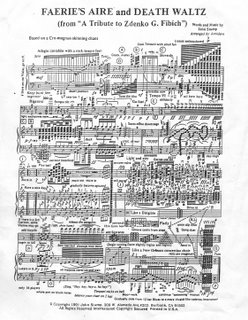
Without reservation I have to say I immensely enjoyed the Roundabout Theater Company's production of
The Threepenny Opera, enjoying what it did offer rather than, as many critics have, projecting my own wishes onto what it ought to have offered. Yes, I do agree with Ben Brantley (a rare occurrence) that both Cyndi Lauper and Jim Dale, remarkable performers to be sure were underused, but is that the fault of the production or of the play? Ms. Lauper (admittedly a crush of mine from the days when she just wanted to have fun) was delightfully callow and brash, while Mr. Dale is quite simply one of the most phenomenal performers out there--his "arias" in the second act are worth the (hefty) price of admission. And while Nellie McKay is not the deftest singer on Broadway, her winsome, feckless characterization of Polly had me entranced for every moment she graced the stage. She was easy to love, easy to fear, and fantastically bland (though not really), no doubt what Brecht intended. She allowed herself to be felt up in her soiled wedding gown without batting a lashy eye, and her love of MacHeath never gave you the sense of a woman trapped but rather a false innocent on the take. Bravo indeed.
Wallace Shawn's "update" was, to me, a translation rooted in wishful thinking: even in Weimar Germany, Brecht and Weill no doubt had to tone down their language and direct attacks; in post-9/11 midtown Manhattan, anything goes, and Mr. Shawn, that delightfully wicked presence on our stage and screen, ran with it. The costumes and direction, by Issac Mizrahi and Scott Elliot respectively, while not exactly gritty, made glamour and perversion into a palpable theatrical commodity, and made all involved as beautiful as possible.
And all I can say about Alan Cummings is that this was the role he was born to play. Many want their MacHeath's slicker and more charming, somewhere between the emcee in
Cabaret and 007 (Sting played it, as did Raoul Julia), but not me. I prefer degraded, dangerous, and bristling with perversions, all of which describe this outrageous portrayal. One for the ages: Brecht and Weill are no doubt giggling in their graves. Or are they crying? After all, their problems are ours, more so, and terror should strike everyone who sees this play. Plus ca change, I suppose...
Yes, it happens at Studio 54, so the very sight is freighted with that locale's demimonde cache history, but can one not rise above the glitz and see the show for what it was: a scorching, sadly still-relevant social mockery. They simply do not make 'em like that any more, and I left weepy over that exact fact.
This one is not for the faint of heart: how much bristling, in 2006, was there in the crown when Mr. Cummings forcibly kissed both women and men? Come on, where have you people been? Perhaps you will agree more with the audience member seated behind me, who, at the beginning of the intermission, growled "We should have seen that nice
Wedding Singer."



